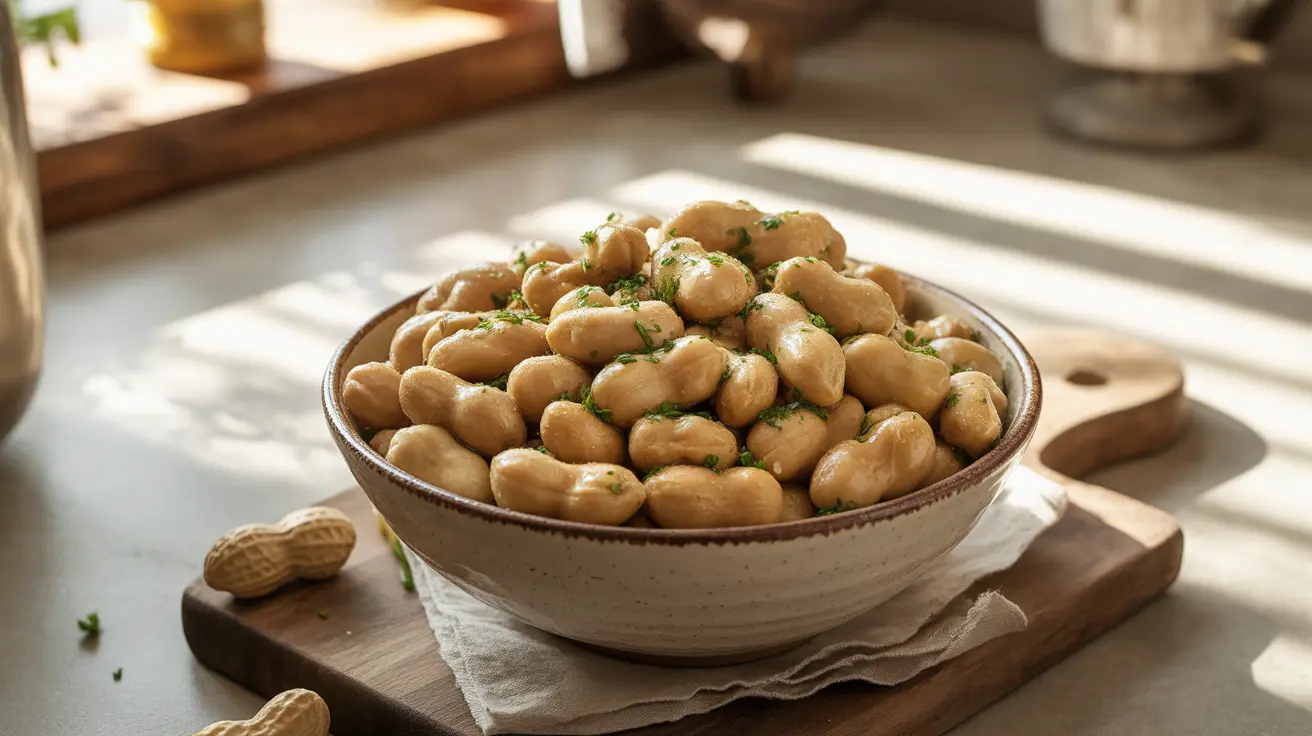Pregnancy often brings up many questions about food safety and nutrition, and boiled peanuts are no exception. For expectant mothers wondering about incorporating this Southern delicacy into their diet, understanding the safety and benefits of boiled peanuts during pregnancy is essential for making informed dietary choices.
This comprehensive guide will explore the safety of consuming boiled peanuts while pregnant, their nutritional benefits, and important considerations for both mother and baby.
Safety of Boiled Peanuts During Pregnancy
Boiled peanuts are generally safe to consume during pregnancy when properly prepared and stored. Unlike raw peanuts, the boiling process makes them easier to digest and can actually enhance their nutritional value. The cooking process also helps eliminate potential harmful bacteria that might be present in raw peanuts.
However, it's important to ensure that boiled peanuts are prepared in clean conditions and consumed while fresh to avoid any food safety concerns.
Nutritional Benefits for Expectant Mothers
Boiled peanuts offer several important nutritional benefits during pregnancy:
- Protein: Essential for fetal growth and development
- Folate: Crucial for preventing neural tube defects
- Healthy fats: Important for brain development
- Iron: Helps prevent pregnancy-related anemia
- Fiber: Aids in digestive health and prevents constipation
The boiling process actually makes certain nutrients more bioavailable compared to raw or roasted peanuts, potentially increasing their nutritional value for pregnant women.
Peanut Consumption and Allergy Prevention
Recent research suggests that consuming peanuts during pregnancy might actually help reduce the risk of peanut allergies in children. However, this should be approached with caution if there's a family history of allergies.
Considerations for Those with Family Allergy History
If you have a family history of peanut allergies, consider these steps:
- Consult with your healthcare provider before including peanuts in your diet
- Start with small amounts to monitor any reactions
- Keep a food diary to track any potential symptoms
- Be aware of early signs of allergic reactions
Safe Storage and Preparation Guidelines
To ensure the safety of boiled peanuts during pregnancy, follow these important guidelines:
- Purchase from reputable sources
- Store properly in refrigeration if not consuming immediately
- Reheat thoroughly before consuming stored boiled peanuts
- Check for any signs of spoilage before eating
- Avoid peanuts that have been sitting at room temperature for extended periods
Frequently Asked Questions
Can you eat boiled peanuts while pregnant, and are they safe for the baby?
Yes, boiled peanuts are safe to eat during pregnancy when properly prepared and stored. The boiling process makes them safer than raw peanuts and easier to digest while preserving their nutritional benefits for both mother and baby.
What are the health benefits of eating boiled peanuts during pregnancy?
Boiled peanuts provide essential nutrients including protein, folate, healthy fats, iron, and fiber. These nutrients support fetal development, help prevent anemia, and contribute to the mother's overall health during pregnancy.
How does eating peanuts during pregnancy affect the risk of a peanut allergy in children?
Current research suggests that consuming peanuts during pregnancy may help reduce the risk of peanut allergies in children. However, this should be discussed with your healthcare provider, especially if there's a family history of allergies.
What are some safe ways to consume peanuts during pregnancy if I have a family history of allergies?
If you have a family history of allergies, consult your healthcare provider first, start with small amounts, monitor for any reactions, and maintain clear communication with your medical team about any concerns or symptoms.
Are there any specific precautions or considerations I should take when buying and storing peanuts for consumption during pregnancy?
Purchase boiled peanuts from reliable sources, store them properly in the refrigerator, reheat thoroughly before eating, and avoid any that show signs of spoilage. Always ensure they're fresh and properly prepared to minimize food safety risks.




